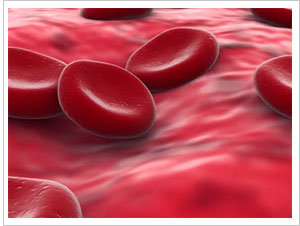Red blood cells infected with malaria become stiffer
 Washington, Nov 23 - Red blood cells (RBC) infected with malaria become 10 times stiffer and stickier than normal ones in later stages, says a new study. They also tend to affect normal blood flow. This explains some of the common symptoms of malaria, such as anaemia and joint pain.
Washington, Nov 23 - Red blood cells (RBC) infected with malaria become 10 times stiffer and stickier than normal ones in later stages, says a new study. They also tend to affect normal blood flow. This explains some of the common symptoms of malaria, such as anaemia and joint pain.
Dmitry Fedosov and George Karniadakis, doctoral student and professor, respectively, at Brown University, developed models to help predict how the disease will spread and thus enhance current malaria treatments.
"Our model predicts the dynamics of malaria-infected RBCs in the bloodstream, which anticipates the possible course of the disease," says Fedosov.
Sticking to the blood vessels' walls is a survival mechanism for a malaria parasite, which needs several days with the RBC to develop completely.
Even though parasitised cells are nearly invisible for the immune system, they may be destroyed in the spleen while circulating freely in the bloodstream.
The researchers measured an increase in resistance to blood flow in capillaries and small arterioles during the course of malaria and found that parasitised RBCs have a 'flipping' motion at the vessel wall seemingly because of the stiffness of infected cells. (IANS)